Scholarly Debates on 'Ummiyy': An Examination of Quranic Usage and Interpretation
This study examines the term ‘Ummiyy’ as it appears in the Quran, focusing on its interpretations across various scholarly traditions. While often translated as 'illiterate,' the term's usage in different Quranic contexts suggests a range of meanings. This article explores these variations and their implications for understanding Islamic texts and the historical context of early Islamic society.
The term ‘Ummiyy’ in the Quran has long been a subject of scholarly debate. While the word is commonly interpreted as 'illiterate,' its exact meaning and application have been contested. This study aims to explore the various interpretations of ‘Ummiyy’ within the Quran and discuss the implications of these interpretations on our understanding of Islamic scripture and history. By examining the usage of the term across different Quranic verses, this paper seeks to clarify the term's meaning and its significance in Islamic exegesis.
The interpretation of ‘Ummiyy’ has varied among Islamic scholars, both classical and contemporary. Ibn Manzur defines ‘Ummiyy’ as someone unable to read or write, and Qurthubi connects it to ignorance and limited knowledge. Scholars like Fakhr al-Din al-Razi and others propose that the term could refer to the people of Makkah or the broader state of ignorance among pre-Islamic Arab tribes. This section reviews these interpretations and critically examines their basis in Quranic text and historical context.
Analysis of Quranic Verses Containing 'Ummiyy'
- Surah Al-Baqarah (2:78)
- The verse states: "And among them are unlettered ones (Ummiyyun) who do not know the Scripture except in wishful thinking, but they are only assuming."
- Here, the term 'Ummiyyun' is interpreted in two ways:
- Jewish Interpretation: It refers to Jews who had knowledge of the divine scripture but were accused of ignorance due to their deviation from its teachings. Scholars like Al-Qurtubi argue that these individuals were literate but were misled by rewriting parts of the scripture.
- Illiteracy Interpretation: Alternatively, 'Ummiyyun' could mean illiterate Jews who lacked formal education in reading and writing, thus susceptible to false beliefs. This interpretation aligns with the traditional understanding of 'Ummiyy' as 'illiterate.'
- Surah Al-Imran (3:20, 75)
- Verse 20: "So if they argue with you, say, 'I have submitted myself to Allah [in Islam], and [so have] those who follow me.' And say to those who were given the Scripture and to the unlettered (Ummiyyin), 'Have you submitted yourselves?'..."
- Verse 75: "And among the People of the Scripture is he who, if you entrust him with a great amount [of wealth], he will return it to you. And among them is he who, if you entrust him with a [single] silver coin, he will not return it to you unless you are constantly standing over him. That is because they say, 'There is no blame upon us concerning the unlettered (Ummiyyin).' They speak untruth about Allah while they know [it]."
- In these verses, ‘Ummiyyin’ is used to differentiate between those with a revealed scripture (Jews and Christians) and the pagan Arabs who did not have any revealed book. Fakhr al-Din al-Razi and Al-Tabari both suggest that the term refers to Arabs without a holy scripture, implying a state of spiritual ignorance rather than mere illiteracy. However, some scholars also argue that ‘Ummiyyin’ might refer to the Arabs of Makkah (Umm al-Qura), yet this is debated due to the context distinguishing between those with scripture and those without.
- Surah Al-Jumu'a (62:2)
- The verse reads: "It is He who has sent among the unlettered (Ummiyyin) a Messenger from themselves, reciting to them His verses and purifying them and teaching them the Book and wisdom, although they were before in clear error."
- Here, ‘Ummiyyin’ refers broadly to the Arab people who had not received a prophet or divine scripture before Muhammad. Scholars such as Al-Suyuti and Tabatabai argue that this denotes a lack of formal religious education rather than literal illiteracy. The verse emphasises the transformative role of the Prophet Muhammad, bringing knowledge and divine guidance to previously unlettered people.
- Surah Al-A'raf (7:157-158)
- Verse 157: "Those who follow the Messenger, the unlettered (Ummiyy) prophet, whom they find written in what they have of the Torah and the Gospel..."
- Verse 158: "Say, [O Muhammad], 'O mankind, indeed I am the Messenger of Allah to you all, [from Him] to whom belongs the dominion of the heavens and the earth. There is no deity except Him; He gives life and causes death.' So believe in Allah and His Messenger, the unlettered (Ummiyy) prophet, who believes in Allah and His words, and follow him that you may be guided."
- In these verses, the term ‘Ummiyy’ directly describes the Prophet Muhammad. While commonly translated as 'illiterate,' many scholars, including Shaykh Tusi and Fakhr al-Din al-Razi, argue it means 'unlettered' or 'unscriptured,' indicating someone without formal education in previous divine scriptures. This interpretation underlines the idea of the Prophet as one who brought new, uncorrupted teachings.
Further Interpretations and Scholarly Debates
- Interpretations by Tafsir Scholars: The majority of commentators, including Fakhr al-Din al-Razi and Shaykh Tusi, interpret ‘Ummiyy’ as indicating a lack of formal education in the scriptures. This aligns with the historical context of the Prophet Muhammad’s early life in a predominantly illiterate society. However, interpretations vary, with some scholars arguing that ‘Ummiyy’ refers to the people of Makkah, deriving from ‘Umm al-Qura,’ meaning 'mother of cities' or 'Makkah.' This interpretation is debated due to linguistic reasons, as discussed by Al-Zamakhshari and Al-Qurtubi.
- Tafsir Al-Kabir (Fakhr al-Din al-Razi): Razi provides a linguistic analysis, suggesting that ‘Ummiyy’ could imply someone unacquainted with writing or books, aligning with the cultural context of pre-Islamic Arabs, who were largely unlettered, emphasising that the term reflects his lack of formal scriptural learning before the Quranic revelations.
Historical Context
The historical context provides significant support for the argument that the Prophet Muhammad (PBUH) was indeed 'Ummiyy' in the sense of being unlettered or lacking formal education in reading and writing. Several historians, including Al-Baladhuri, have documented that during the Prophet's time, there were only about eighteen individuals in Makkah who were known to possess the skills of reading and writing. This limited literacy context in Makkah bolsters the argument that the Prophet was not among the literate individuals.
Moreover, early Muslims, who were meticulously attentive to every detail of the Prophet's life and actions, did not record any instances that would suggest he was literate. This silence is notable given the early Muslims' dedication to preserving every aspect of the Prophet’s life, behaviour, and teachings. If the Prophet had been literate, such a significant detail would likely have been documented. The lack of any such records, even by his staunch opponents, further strengthens the case for his illiteracy. Opponents of Islam, eager to find faults in the Prophet, would undoubtedly have exploited such a fact if it existed. The absence of any mention in hostile accounts implies that no such evidence existed.
Additionally, had the Prophet Muhammad (PBUH) been literate, one would expect historical records of his writings or references to his teachers. The absence of any documents authored by the Prophet or any mention of a teacher who taught him reading and writing is another strong piece of evidence in support of his unlettered status. If he had engaged in writing, his contemporaries would have undoubtedly recorded it, and his teacher would have been noted in history for their significant role in shaping one of the most influential figures in history.
In conclusion, the historical context of Makkah's low literacy rate, the meticulous documentation practices of early Muslims, and the lack of evidence pointing to the Prophet’s literacy collectively provide a compelling case for the Prophet Muhammad's (PBUH) unlettered status. This understanding aligns with the term ‘Ummiyy’ as used in the Quran, which highlights the miraculous nature of the Quranic revelation being transmitted by someone who was not taught to read or write, thereby underscoring the divine origin of the message.
Conclusion
The term ‘Ummiyy’ in the Quran presents a complex case of linguistic and theological interpretation. While often rendered as 'illiterate,' the term's broader implications in the Quranic context suggest a multifaceted meaning that encompasses spiritual ignorance, lack of scriptural knowledge, and the Prophet’s unique status among his people. This study contributes to the scholarly understanding of Quranic exegesis and highlights the importance of contextual and linguistic analysis in interpreting religious texts.
References
- Al-Tafsir Al-Kabir (Fakhr al-Din al-Razi)
- Al-Durr Al-Manthur Fi Tafsir Bil-Ma'thur (Imam Jalal al-Din al-Suyuti)
- Rawd al-Jinan wa Ruh al-Janan/ Tafsīr Abū al- Futūḥ (Abu l-Futuh al-Razi)
- Al-Kashshaaf 'an Haqa'iq at-Tanzil (Mahmud ibn Umar al-Zamakhshari)
- At-Tibyan Fi Tafsir al-Quran (Shaykh Tusi)
- Tafsir Bahral Uloom (Abul Laith Samarqandi)
- Al-Mizan fi Tafsir al-Qur'an (Allamah Tabatabai) (Shiite)
- Al-Iḥtijāj ʿalā ahl al-lijāj (Abu Mansur al-Tabrisi) (Shiite)
About the Author:
Fawaz Muhammed hails from Thodupuzha and is currently a student at Darul Huda Islamic University.
Disclaimer
The views expressed in this article are the author’s own and do not necessarily mirror Islamonweb’s editorial stance.

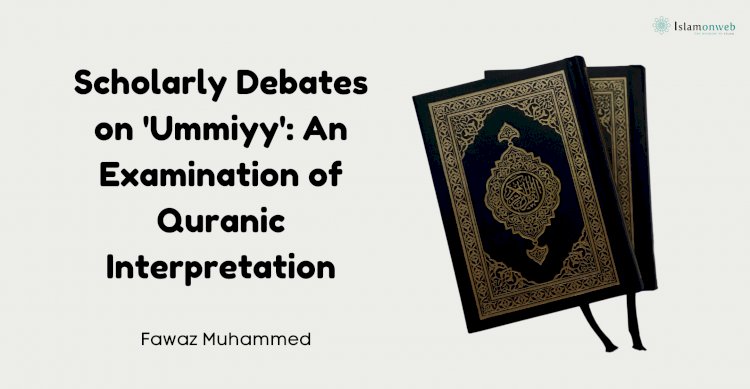


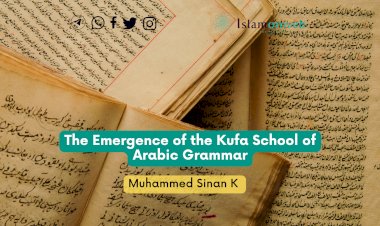
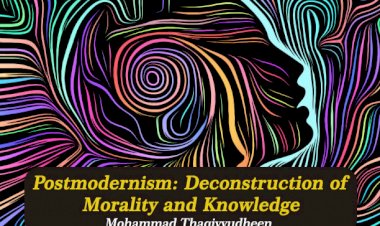
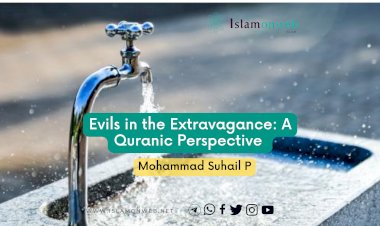

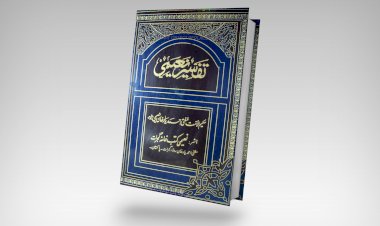















Leave A Comment